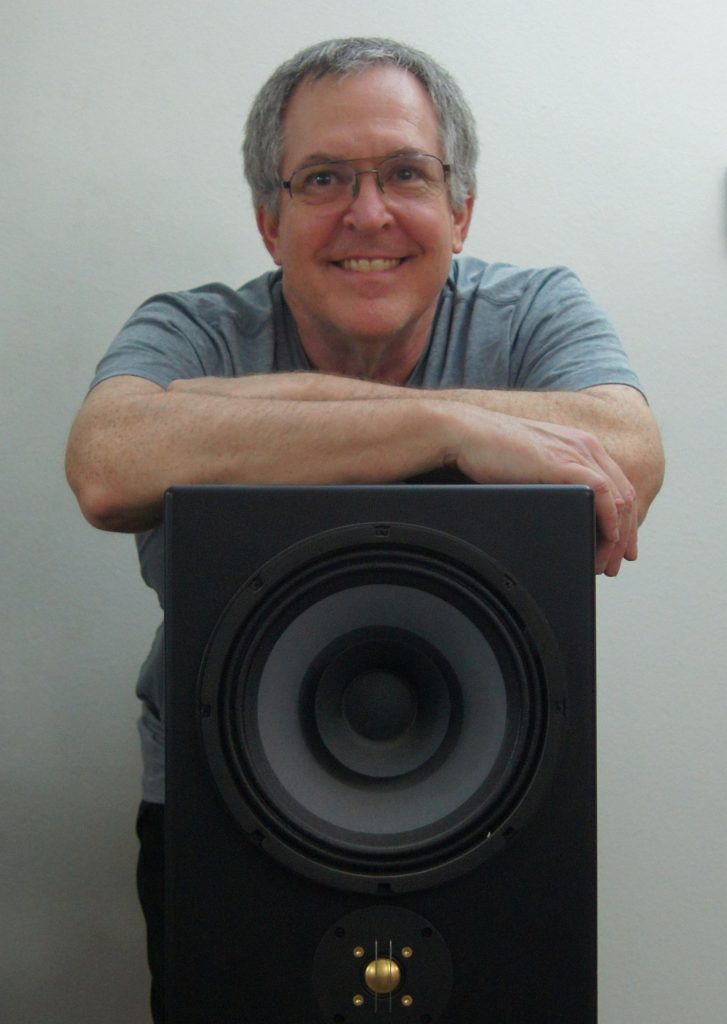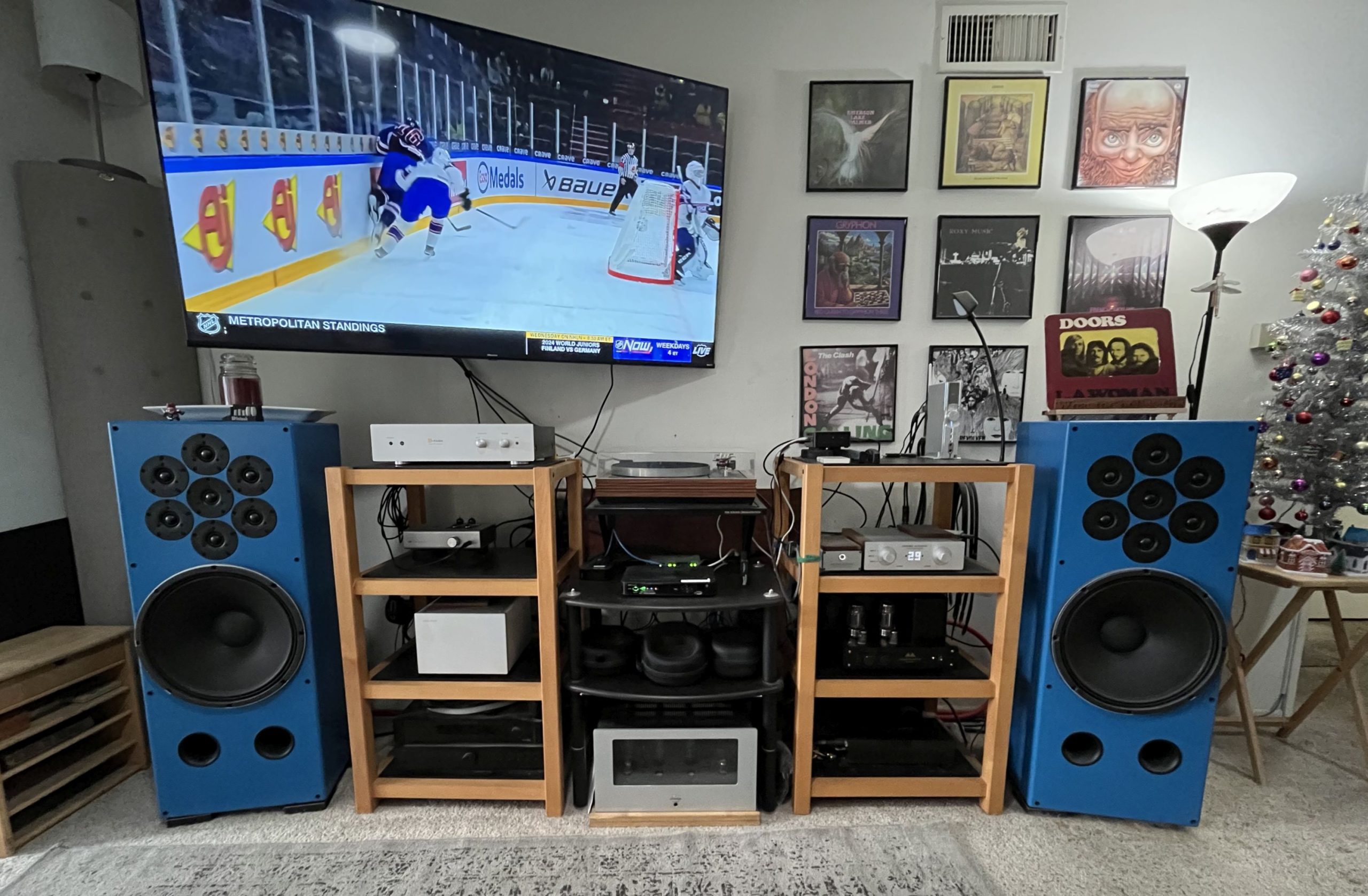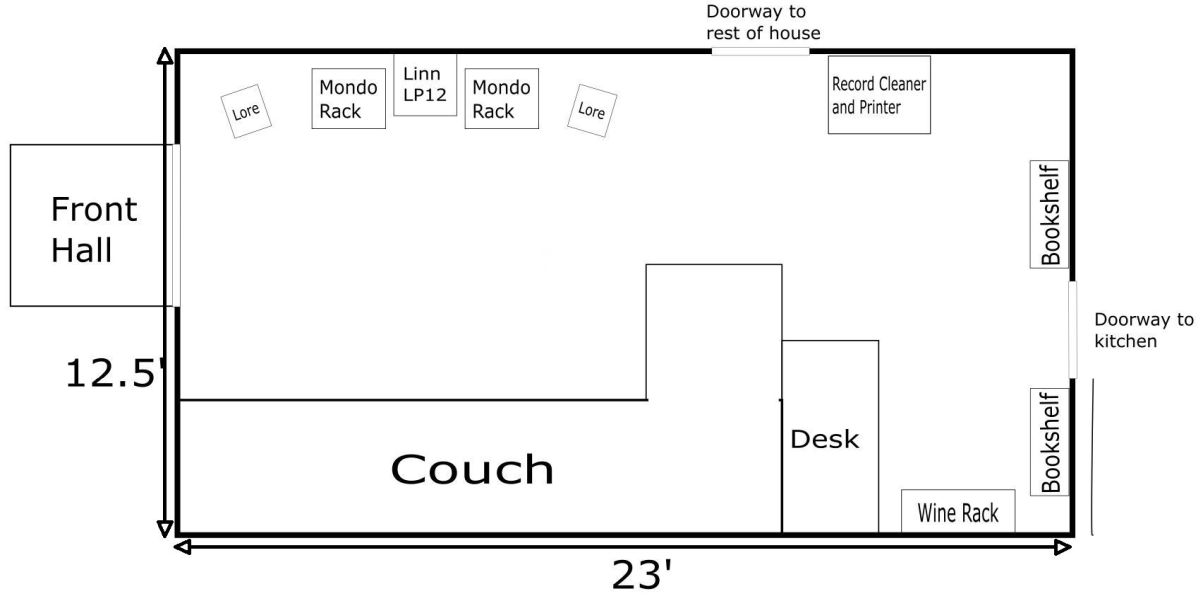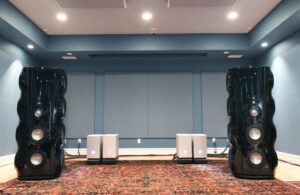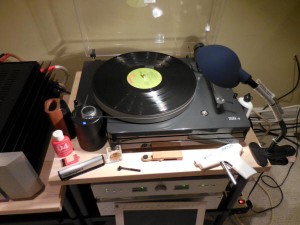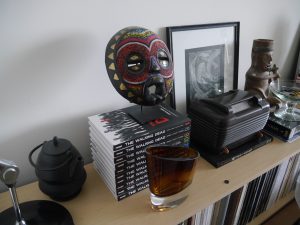As anyone who has followed my work for the past twenty years or so know, I am all about lower cost, high value audio. I love finding equipment that punches above is price class and attempts to give real, solid, quality sound with the potential for long term satisfaction. I feel I have been pretty successful at unearthing some real gems over the years, and have assembled a low cost system at home that remains relatively stable, and gives me the high quality music reproduction that I want. I am totally satisfied with this system, and feel it is a great reference point for my articles about lower cost audio gear.
On the other hand, I'll be the first to admit that the very best systems I've heard over the years have been quite a bit more expensive than mine, and far more than I would ever be able or willing to pay for an audio system. The point isn't that I don't think more money can't get you better sound, but rather that more money isn't always the answer.
I like to use cars as an analogy. I love performance cars, and many years ago rallied a Volvo 122S. It wasn't so great on the paved sections, but was lots of fun in the dirt and snow, and taught me a great deal about proper handling technique. Imagine if you were thinking about buying your first fun car, and asked some auto enthusiasts about a good way to start out. What if their answer was that you could get by with a Porsche or a Corvette, but until you got a Ferrari or Lambo you wouldn't really understand? And then what if it broke down to a nasty argument over purist manual transmissions and rear wheel drive versus paddle shifted dual-clutch or all-wheel drive? Then the sports sedan versus coupe versus ragtop debate would rage. Finally, of course someone would carry on about how nothing since the Lotus 7 could be considered real sports car…
You get the idea.
Of course I would suggest you get a Miata or a BRZ, find some out of the way country roads and have fun. You can always buy a faster or higher tech car at some point in the future if you feel you need to, but you might also find that for the simple joy of hitting an apex perfectly or sliding through an off-camber decreasing radius curve, one of these cars may be all you need.
But, back to audio. I've been pushing the importance of high quality lower cost gear for since the mid 1980s. And have been taking that quest seriously. While others get stuck in the upgrading process, spending more and more for what will inevitably be smaller and smaller gains, I try to find those incremental improvements by spending less, not more.
In 1982 I owned early (second generation) Acoustat Monitors that in the late 1970s sold for $3200. In the early 2000s I had VMPS RM-2neo speakers that were pretty amazing, and sold for about $2700. For the past five years I have been totally satisfied with the Tekton Lores that cost all of $1000.
Having said all that, there are a few things I get worked up about when discussing lower cost audio. Mostly it revolves around the terms involved, and why the most common ways to describe it are meaningless.
Affordable
I realized years ago that I should never use the term affordable when discussing audio. I do not review "affordable" equipment. To someone making ten dollars an hour, a thousand dollar pair of speakers are not affordable. The new recent college graduate, even if they managed to get a decent paying first job in their field, with school loans to pay off, health insurance, and probably having to deal with paying their own way for the first time in their life, a few thousand dollars for a stereo is not affordable. To the middle-class family with a couple kids, youth sports, school expenses, day care, and the like, that $5000 to $10,000 we all say is affordable for a budget system, doesn't seem so attainable.
In reality, everything is affordable to the people who buy it, even those (and especially those) $100,000 amplifiers and $200,000 speakers. Nothing is affordable to those who don't think what they get is worth it. To say a product is affordable says nothing about the value of a product, or whether anyone will be willing or able to pay for it.
Entry Level
The term Entry Level should be an okay term. It should designate a point where quality is high and cost low enough, or better described as the price to performance ratio is good enough that real high quality sound will be there without overspending your budget. But then we run into the same issue of what is that price point that makes it entry-level, and for whom?
My main issue with the term entry level as generally used in audio, and where my issue with the term lies, is that it seems to always indicate a short term, temporary, flawed or heavily compromised piece that will tide you over only until you get a better (read, more expensive) piece to replace it. That is, it seems to be used as a description of entry into an upgrade path, rather than an entry into good sound. I try never to suggest anything that seems like it is intended as a stopgap measure. A product I tire of or feel the need to upgrade from too quickly is not something could recommend.
"It will do until you can afford something better…" is not something you will hear me say. I guess it is why I like simple turntables, passive line stages, basic amplifiers, and speakers that are full range enough to not limit my choices in music.
Budget Audio
And finally, regarding the term budget audio, I guess to me that is just another meaningless term. Don't most people buy things based at least somewhat loosely on some kind of budget? "I think I'll by this $10,000 preamp…" isn't something someone thinks if they only have a few hundred dollars in the bank. On the other hand, I've read too many articles and comments about five figure items being "budget alternatives" to much pricier pieces. To qualify the term with a phrase like beer budget, just makes me think that some people drink $15 a bottle craft beer, while many people buy their Bud in 30 packs. Still, maybe compared to $500 for a bottle of whisky it makes a little bit of sense.
In the end, I seek out and write about lower cost, high-value audio gear. I enjoy it and take it as a challenge. I will generally stick to my under $3000, but probably closer to $1000 target price range, with the occasional foray into slightly more expensive pieces, just to be aware of what I might be missing. I suppose if I hit a lotto jackpot someday, I'll pony up a little bit more for a really killer system. Who knows, maybe I'll bump my budget up to something extravagant, maybe even as high as $5000!
The LA Audio Show – Positive Feedback Presents - Getting Started
Having said all that, after all these years it's time to put my time and effort, if not my own money, on display and show the world what I'm talking about. For all of you who will be attending the LA Audio Show June 2-4 at the Sheraton Gateway Hotel in Los Angeles, I will be hosting a special exhibition suite (Room 533) for just this purpose, using gear from these companies:
Audioengine, Audioquest, Auralic, Belkin, Elac, Emotiva, Heed Audio, iFi, Magnepan, Music Hall, Pangea Audio, Pro-Ject, Record Doctor, Schiit Audio, Tekton Design, and U-Turn Audio
I will be showing full systems ranging from as little as $350 up to just under $5000. We will have turntables, computers, music streamers, and even Bluetooth capability. And sticking with my long time belief that you have to demonstrate audio gear with music your listeners know and already like, unlike most rooms we will encourage everyone to bring their own music to play. Bring your LPs, music files (preferably on a USB stick), you can even bring your iPod, QP1, AK, Pono, or phone and we'll play from it, time permitting.




